|
A keg saved my life today. If you found yourself in Philipsburg, Montana on a particular June day in 1876, you might have heard those words upon an encounter with Mr. Charles Kroger, the celebrated owner of the town’s first brewery (at the same site on which we brew today: the Springs). Mr. Kroger’s brush with death occurred while on the clock, heading home from delivering beer, “that modern essential to comfort,” as the local paper described it in those days (seems not much has changed). As reported in the Helena Weekly Herald’s “Territorial News” section, “C. Kroger, returning from Bear to Philippsburg with an empty beer wagon, came near losing his life while crossing Flint creek. … He lost his team, and barely succeeded in navigating to the shore on an empty beer keg.” Charles Kroger was a bit of a celebrity in Philipsburg (sometimes spelled with two P's at that time); regional newspapers gushed about his business from the day he purchased the land. In 1876 Kroger’s Philipsburg brewery had only been open a year, but the town was growing, attracting more hard-drinking miners without family obligations to keep them in check (women and children were a very rare sight). The “Bear” that the Herald reports Kroger coming from was likely Beartown, the mining camp that he moved to Philipsburg from. Beartown formed in 1865 when gold was struck on Bear Creek, about six miles from the Bearmouth area (by a group clearly lacking in creativity, at least when it came to naming). Beartown was known as “a rowdy, lawless camp that drew prospectors from far and wide” and Kroger likely contributed by running his first brewery there. He shared a house with two other men, one of which was also a brewer. Kroger gained at least five years of brewing experience, while also mining, before meeting his wife and opening the Philipsburg brewery. We like to imagine that Kroger’s wife, Anna, was a beer lover too, encouraging his entrepreneurial spirit. Although they met in Deer Lodge, both Anna and Charles were from Germany after all, where beer is a major part of the culture. It’s understood that the large number of immigrants from strong beer-drinking countries (like Germany) directly contributed to the emergence of America’s beer culture. Incredibly, per capita consumption rose from under four gallons in 1865 to 21 gallons in 1910! Kroger’s Brewery sold beer in both bottles and kegs, and, like most breweries of the time, delivered customer orders on a horse-drawn beer wagon. Kroger was driving his wagon with a lightened load after (presumably) delivering beer to Beartown. And then he lost his horses and almost died in Flint Creek. So few details, so many questions! First of all, we’re told Kroger needed to grasp an empty beer keg to “navigat[e] to the shore” of… Flint Creek?! Locals know Flint Creek as quite narrow, shallow, and slow-moving; it’s tough to imagine it drowning a man. Which tells us Kroger must have been seriously injured if he struggled to get to shore. How might this have happened? Brewery horses had to be well-trained, but like any horse, they could spook and bolt, breaking free of the wagon or bringing it for the ride, ramming people and buildings and throwing contents to the ground. Drivers themselves were thrown as well (or they chose to jump off), causing head injuries and broken legs, ribs, and necks, sometimes even death. This was actually quite a common sight in the nineteenth and early twentieth centuries; newspapers were full of stories of “runaways” and their aftermath.
Now consider that Kroger was not in town, but, instead, alone in the country. Those of you lucky enough to have spent the nineties playing Oregon Trail, think back to those tricky river crossings in which any number of things could go wrong, like the wagon getting stuck in the mud or breaking a wheel—and that was with oxen, which were better behaved than horses. Then consider that many horses have a fear of water, even as small as a puddle. We’ll let you do the math from here, but whatever happened that left Kroger in Flint Creek and his team of horses running wild, he eventually managed to make it back to town to tell the story and keep the beer flowing in “unlimited” quantities. That wasn’t the last of Kroger beer wagon runaways, but likely the most memorable. We say beer wagon drivers were mining town heroes, risking life and limb to supply “that modern essential” to the people. Kroger and company fulfilled that mission ‘til the end, or what surely felt like the end: prohibition. We’re proud to continue his work today, brewing and bottling on the original site, where Kroger’s hoptower stands to this day.
1 Comment
Leave a Reply. |

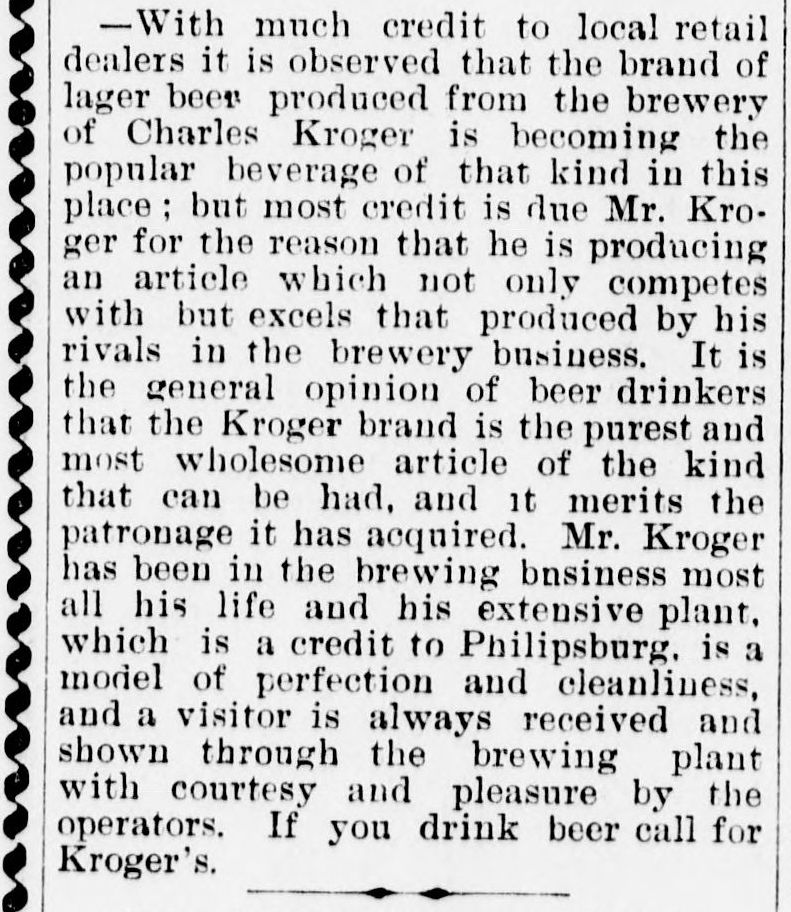
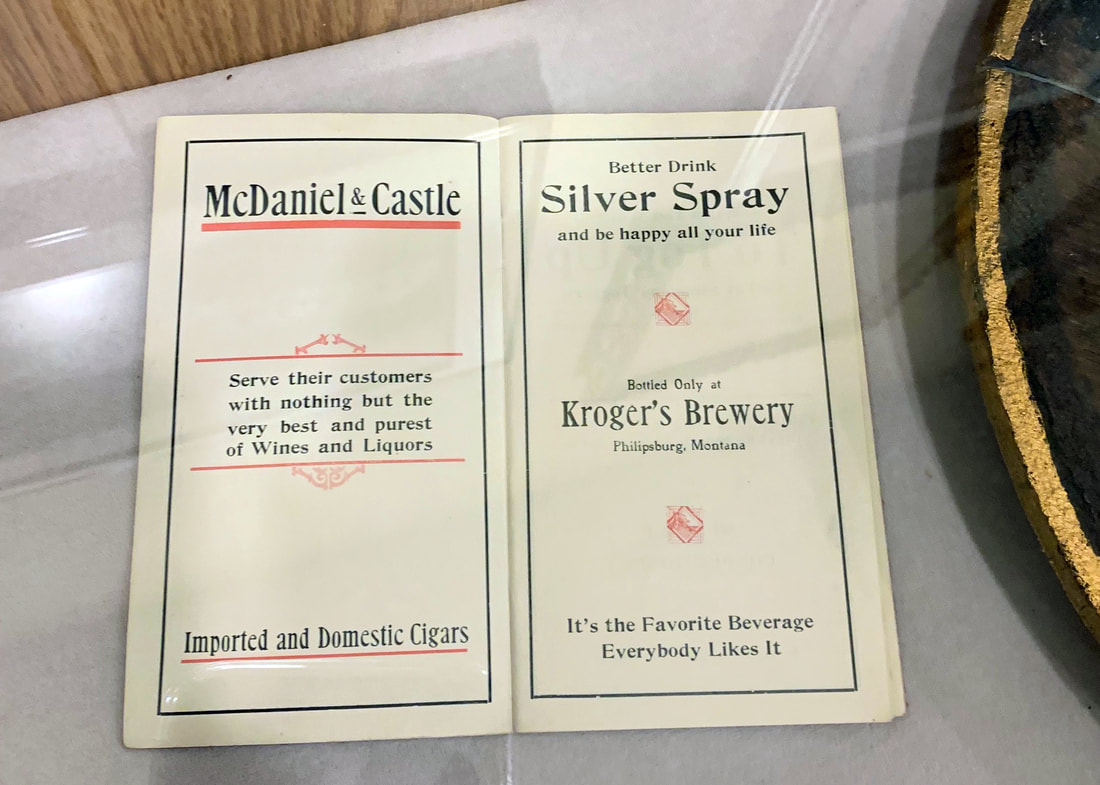
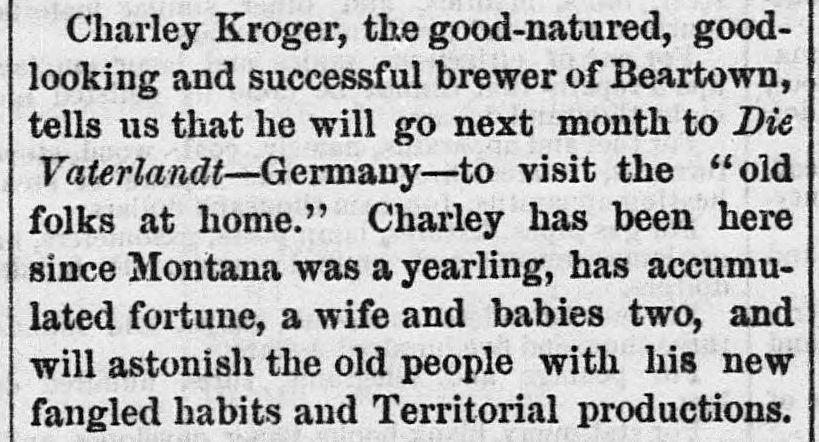
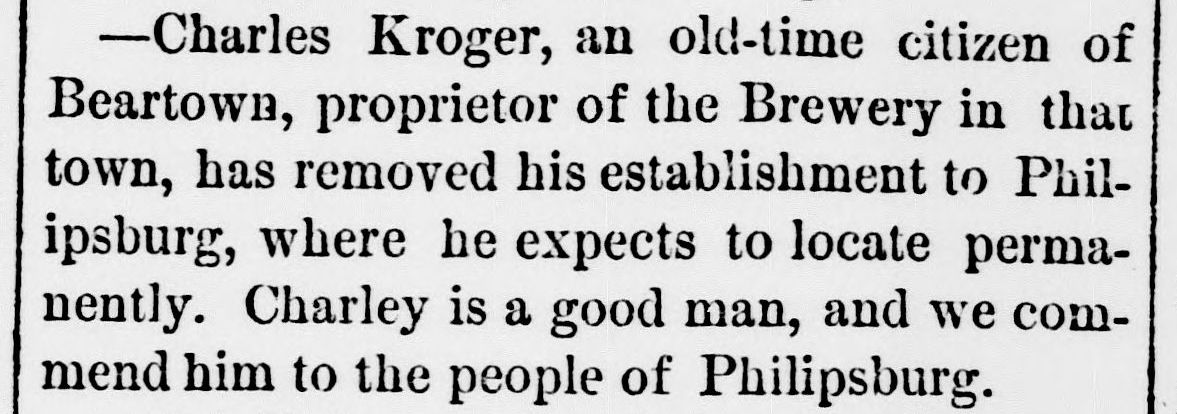

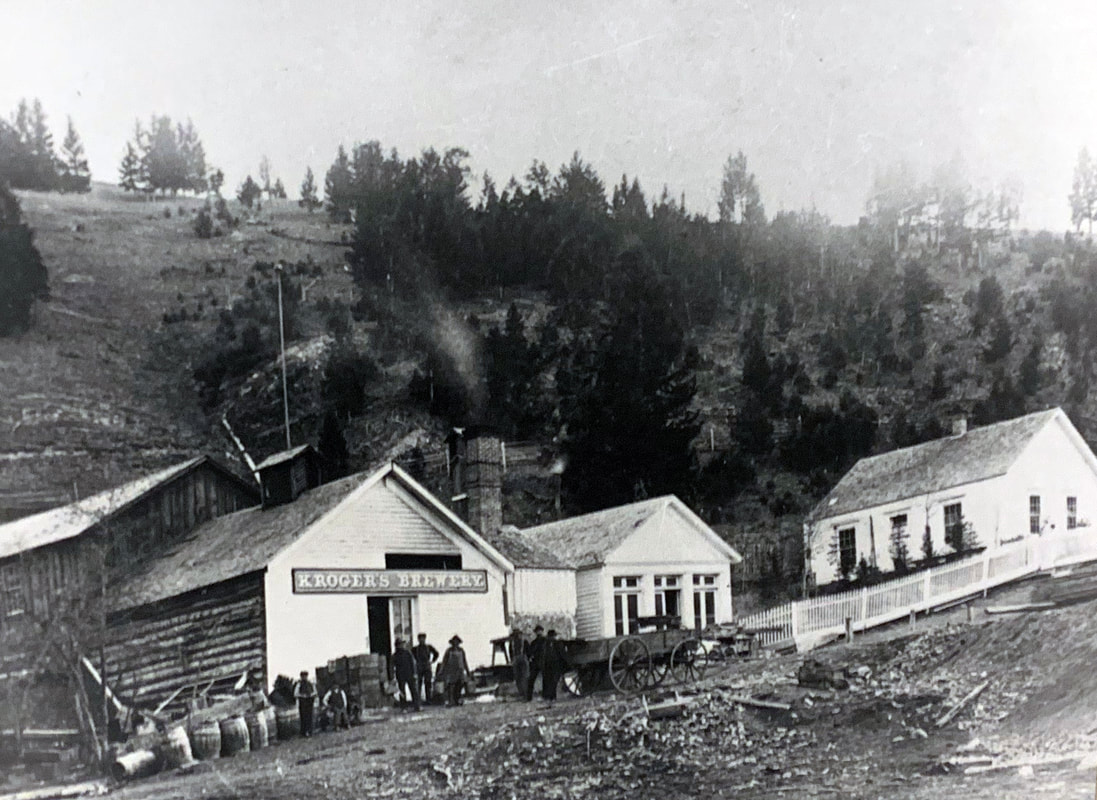
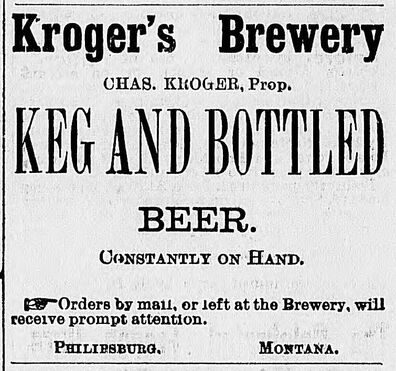

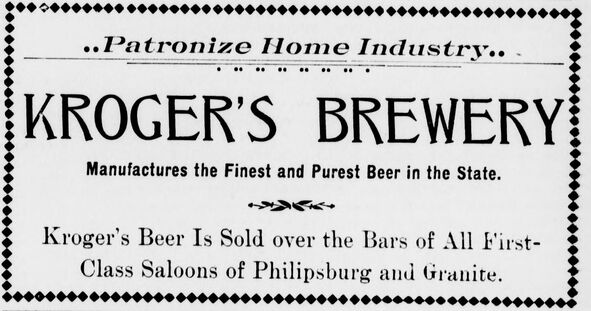
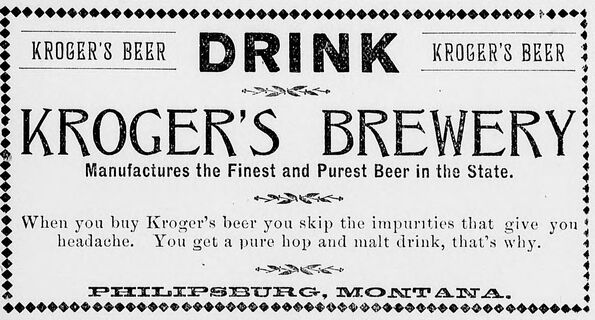
 RSS Feed
RSS Feed
